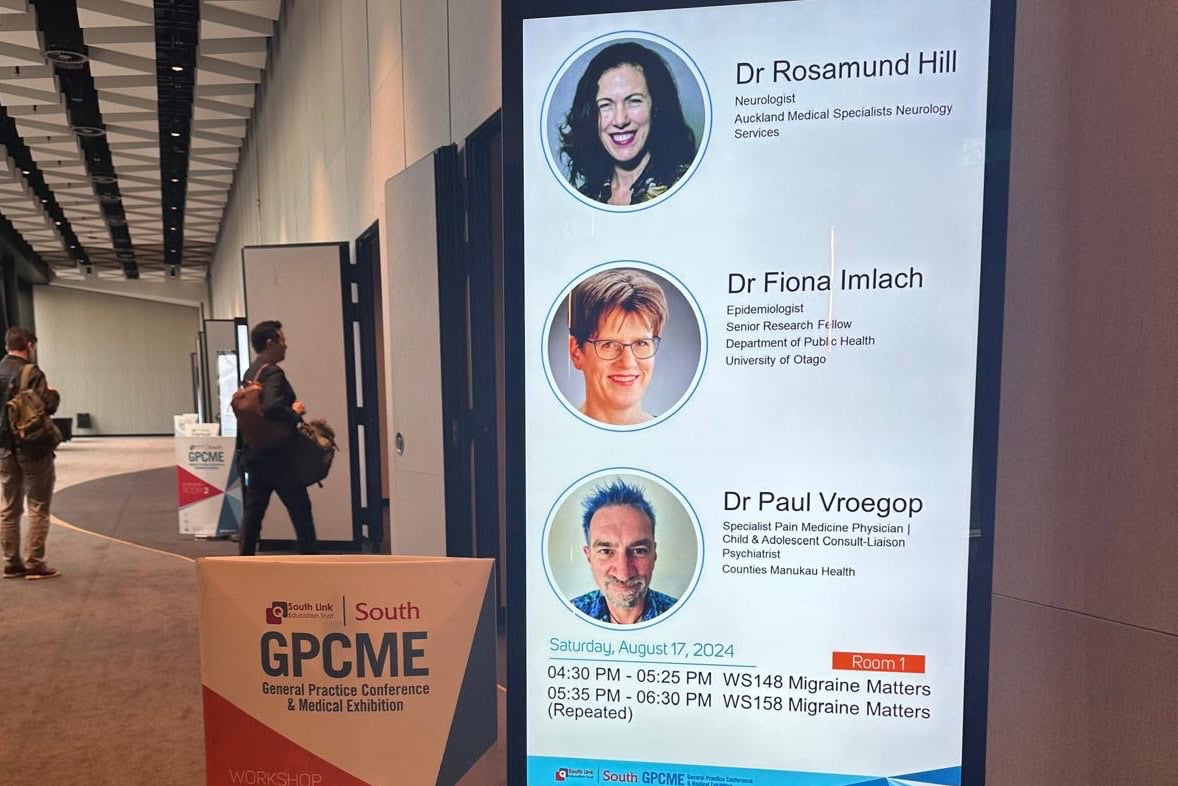Migraine featured this year at the major annual GP conference of the South Island – the GPCME South Conference, held at Te Pae conference centre in Christchurch from 16–18 August with 858 attendees.
Migraine Foundation co-founder Dr Fiona Imlach and Clinical Advisory Group members Dr Rosamund Hill (neurologist) and Dr Paul Vroegop (pain specialist and child/adolescent psychiatrist) gave two (repeated) one-hour workshops about migraine. Even though these were scheduled for 4.30pm and 5.30pm on Saturday, 87 people registered to attend the first session and 67 registered for the second. Hats off to these diligent, hardy health professionals who stuck it out until the end of the day.
Dr Hill talked about treatment options for optimal management of acute attacks and prevention, covering the new migraine medications targeting calcitonin gene-related peptide (CGRP), including galcanezumab (Emgality) and atogepant.
Dr Vroegop provided an overview of pain mechanisms and the difference between acute and chronic pain – although they feel exactly the same, they have different causes and different approaches to management. Migraine is a type of persistent pain disorder that does not occur in response to tissue damage or injury but due to an inappropriate activation of the nervous system.
Dr Imlach gave an overview of survey results on migraine in NZ, highlighting the impact of migraine disease, barriers to healthcare and issues with medications used to manage migraine. Audience members identified various challenges in managing migraine including seeing people with a migraine attack on the same day and getting pain under control, preventive treatments, side effects and when people do not respond to treatments, lack of funding for Emgality – all the same frustrations felt by people with migraine themselves.
Dr Hill also gave two workshops on case studies in neurology, including a migraine case, and Dr Vroegop gave two workshops on chronic pain in children and adolescents.
This was a fabulous opportunity to talk to GPs and others working in primary care about migraine and we’ll be actively seeking to participate in similar events next year.


